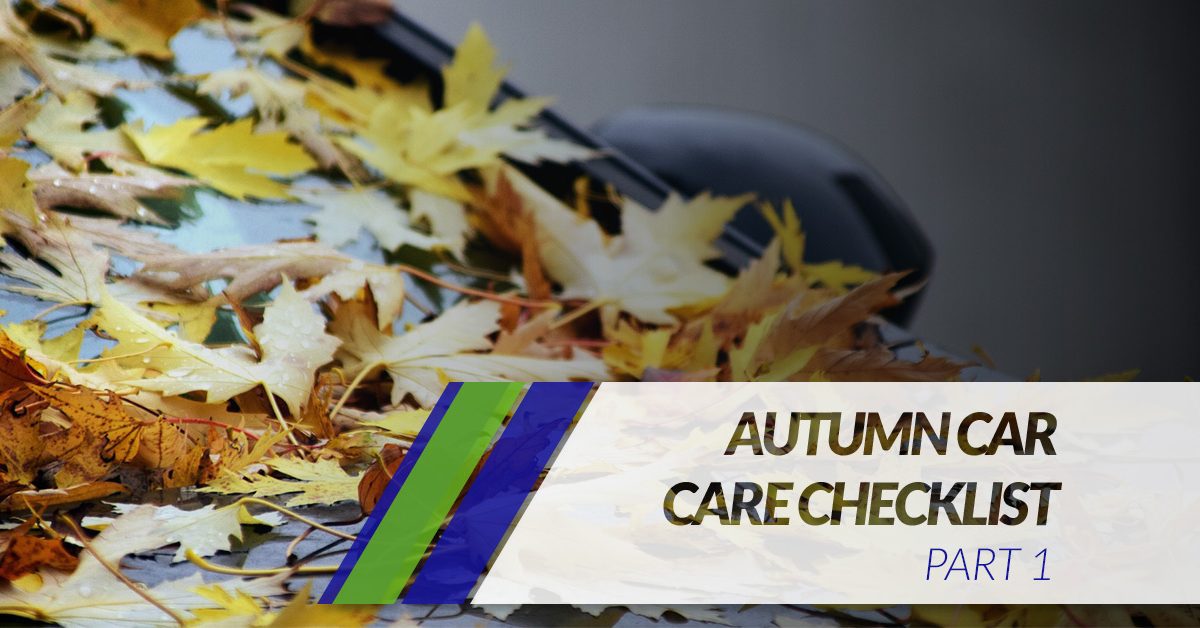Cool temperatures and winter weather are on their way, and in Colorado, you need to be prepared. Our icy temperatures and heavy snowfall aren’t to be taken lightly. Additionally, winter has a nasty way of magnifying preexisting car issues, especially hard starts, rough idling, and slow performance.
If you aren’t sure if a little fall maintenance is worth the cost, remember that cars generally take a bit of maintenance and make it go a long way. You don’t have to spend hundreds of dollars; just take your vehicle through the following checklist with the help of Metric Motors in Loveland.
Fall Car Care Checklist
As you go through this checklist, make sure you have a professional on hand to ensure each check is properly managed. You don’t want to come out on the other side with new issues!
Brakes and Tires
When it comes to driving in snow, your brakes and tires are your first line of defense. Your tires are especially crucial to getting you out of the driveway and through that slick combination of snow, ice slicer, and dirt on the road during your commute. Address the following parts of this all-important system:
- Your brakes need to be checked by a professional. Depending on where they are in their lifespan, they may not be thick or strong enough to give you the control you need all winter long. Keep in mind that, while they may not come cheap, they keep you alive. Your life is worth a lot more than a few hundred dollars.
- Make sure your tires have the right tread depth. They need to be able to bite into the snow or you won’t be getting anywhere on those mornings when snow fell all night and the plow just came through and made a wall of snow in front of your driveway. You will find making turns, stopping, and accelerating to be next to impossible. This is not a situation in which you can cross your fingers and hope your worn-out tires make it through the winter season. Invest in new ones or buy snow tires. You live in Colorado, after all!
- Keep close tabs on tire pressure. Without the correct air pressure, your tires won’t perform in the snow. Additionally, icy cold temperatures compress the air in your tires, which can have a big impact. Make sure your tires are at the correct PSI, not lower and not higher. We recommend you check your tire pressure every week through the winter to ensure your tires are ready to give you their safest performance.

Lights, Heating, and Wipers
Once you know your vehicle can keep reasonable contact with a winter road, you’re ready to move onto the next essential systems that help you see and stay comfortable. Let’s dive in!
- Your heaters and defrosters need to work. Without a functioning heater, you’ll be miserable during each drive. However, your heater plays an even more important role than keeping you warm: it preserves the view. Your heater does a lot to clear your windshield and keep it that way. Your defroster, an extension of your heating system, plays a huge part in clearing your back (and sometimes, side), windows. Even if you have a good brush and scraper to unbury your car in the morning or after a long, snowy day at work, you need a good heater and defroster to keep your view clear. And that isn’t all…
- Your wiper blades and washer fluid need to be ready. Do your wipers leave uncleared sections of windshield when you use them? Is your washer fluid made for summer conditions? Wipers are your best friend when the snow is flying, and when you add in a little winter washer fluid, you can really get things cleared up nicely. Wipers can take a beating, but if they can’t fully clear your windshield in warm weather, they will just make things worse in the snow. We recommend you change your wipers every six months, but however you decide to handle it, make sure your wipers can do their job. This is one replacement cost that is very low and very worthwhile.
Oil, Filters, and Gas
As we said previously, winter conditions tend to exacerbate car problems you already have. Your car’s gas and oil systems are crucial to its ability to get you from Point A to Point B, and they tend to get bogged down when it is cold. We’ve all crossed our fingers while cranking the ignition in subzero temperatures. Invest some good time and money into your car, and you won’t have to.
- Dirty oil is always bad, but it can really make problems in the winter. Without oil, your car’s engine will actually destroy itself. Stick to the recommended oil-change schedule for your vehicle and consider using winter weight oil to ensure it stays liquid for you when it’s below zero and you absolutely need your car to start.
Well, that’s all we have time for today. Check back for Part 2, where we’ll finish discussing Oil, Filters, and Gas, and provide you with the rest of the information you need to be completely ready for winter. In the meantime, contact our auto mechanic team in Loveland for the best winter prep!




